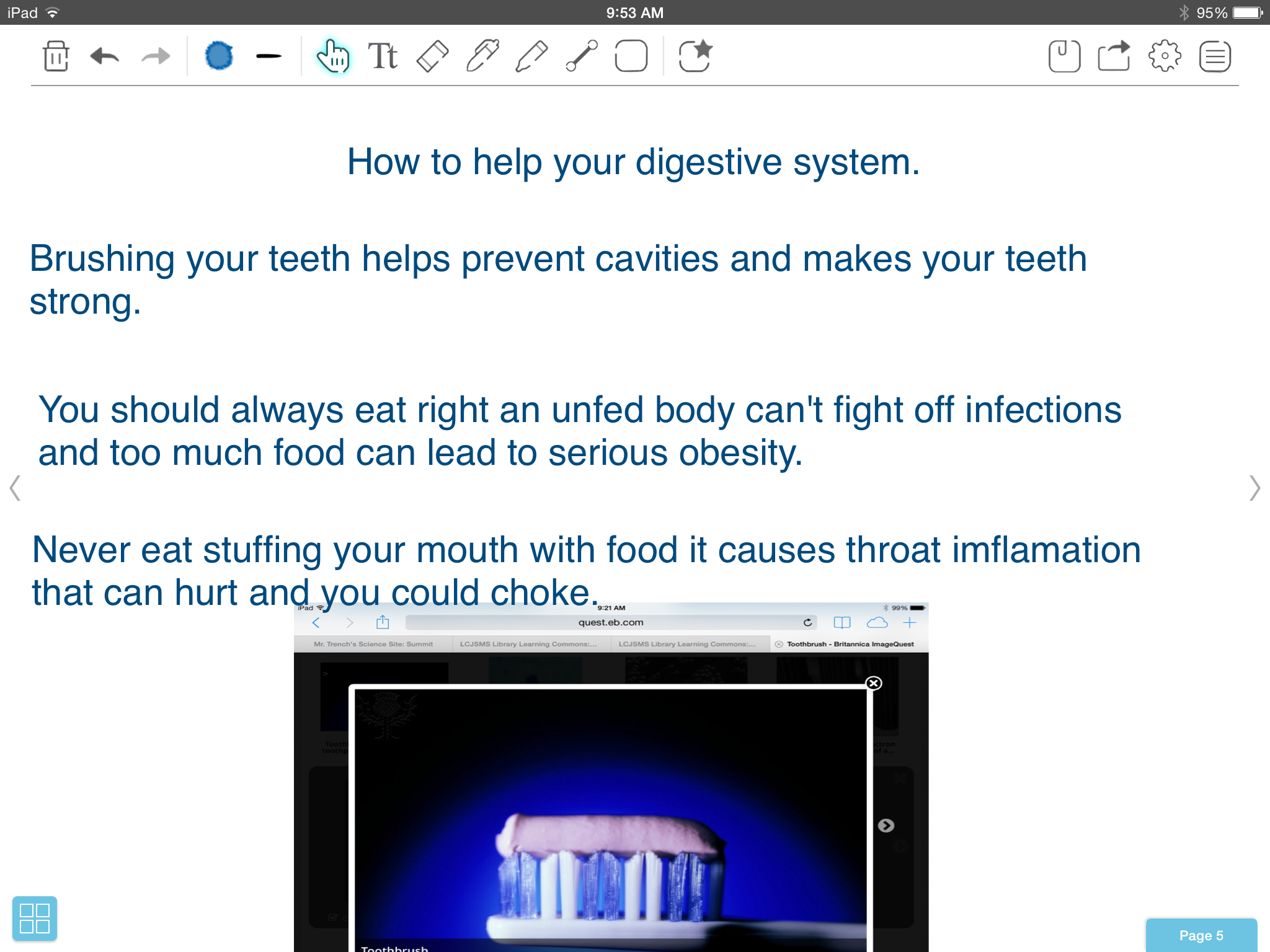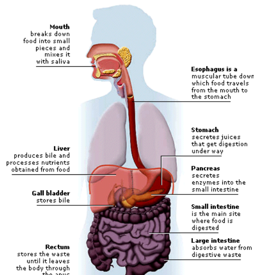-
The Digestive System On Flowvella

Mobile guardian enterprise edition 6.5 for mac. The digestive system is made up of the gastrointestinal tract—also called the GI tract or digestive tract—and the liver, pancreas, and gallbladder. The GI tract is a series of hollow organs joined in a long, twisting tube from the mouth to the anus. Teaching about the digestive system can be easier for you with preplanned lessons, units, and additional teaching resources. Children, as you know, learn in a variety of different ways. Use the resources at TeacherPlanet.com to reach all the minds in your classroom.

Gastroesophageal Reflux Disease (GERD) When stomach acid backs up into your esophagus — a condition called acid reflux — you may feel a. It often occurs after meals or at night, says, a clinical instructor of medicine at the Icahn School of Medicine at Mount Sinai and a gastroenterologist with New York Gastroenterology Associates.
While it’s common for people to experience acid reflux and heartburn once in a while, having symptoms that affect your daily life or occur at least twice each week could be a sign of, a, according to the National Institute of Diabetes and Digestive and Kidney Diseases (NIDDK). If you experience persistent heartburn, tooth erosion, nausea, pain in your chest or upper part of your abdomen, or have trouble swallowing or breathing, see your doctor. Most people find relief by avoiding the foods and beverages that trigger their symptoms and/or by taking over-the-counter antacids or other medications that reduce stomach acid production and inflammation of the esophagus. But some cases of GERD require stronger, such as medication or surgery.
Gallstones are hard deposits that form in your — a small, pear-shaped sack that stores and secretes bile for digestion. More than 25 million people in the United States have gallstones, with nearly one million new cases of gallstone disease diagnosed every year — approximately one-quarter of which require treatment,. Gallstones can form when there’s too much or waste in your bile, or if your gallbladder doesn’t empty properly. When gallstones block the ducts leading from your gallbladder to your intestines, they can cause.
Medications sometimes dissolve gallstones, but if that doesn’t work, the next step is. Celiac Disease An estimated 1 in 133 Americans has celiac disease, formerly the National Foundation for Celiac Awareness. The group also estimates that 83 percent of people who have celiac disease don’t know they have it, or have been misdiagnosed with a different condition. Is a serious sensitivity to gluten, which is a protein found in wheat, rye, and barley.
Eat gluten, and your immune system goes on the attack: It damages your villi, the finger-like protrusions in your small intestines that help you absorb nutrients from the foods you eat. In children include abdominal pain and bloating, diarrhea, vomiting, and weight loss. Symptoms in adults can also include anemia, fatigue, bone loss, and seizures.
Yet some people may not have any symptoms. The only is to completely avoid eating gluten. Common alternatives to gluten include brown rice, quinoa, lentils, soy flour, corn flour, and amaranth. Crohn’s Disease is part of a group of digestive conditions called inflammatory bowel disease (IBD).
Crohn’s most commonly affects the terminal ileum, which connects the end of the small bowel and the beginning of the colon, but it can affect any part of the digestive tract. As many as 780,000 Americans may be affected by Crohn’s,. Doctors aren't sure what causes the disease, but it's thought that genetics and family history may play a part. The most common are, diarrhea, rectal bleeding, weight loss, and fever. “Treatment depends on the symptoms and can include topical pain relievers, immunosuppressants, and surgery,” Dr. Ulcerative Colitis is another inflammatory bowel disease that. The are very similar to those of Crohn's, but the part of the digestive tract affected is solely the large intestine, also known as the colon.
If your immune system mistakes food or other materials for invaders, sores or ulcers develop in the colon’s lining. If you experience frequent and urgent bowel movements, pain with diarrhea, blood in your stool, or abdominal cramps, visit your doctor. Medication can suppress the inflammation, and eliminating foods that cause discomfort may help as well. In severe cases, may involve surgery to remove the colon. You are search for mac mac. Irritable Bowel Syndrome Is your digestive tract irritable? Do you have stomach pain or discomfort at least three times a month for several months? It could be irritable bowel syndrome (IBS), another common digestive condition.
Suffer from irritable bowel syndrome, and of that percentage between 25 and 45 million people live in the United States, according to the International Foundation for Functional Gastrointestinal Disorders. Can vary widely: You can be constipated or have diarrhea, or have hard, dry stools on one day and loose watery stools on another.
Bloating is also a symptom of IBS. What causes IBS isn’t known, but treatment of symptoms centers largely on diet, such as eating low-fat, high-fiber meals or avoiding common trigger foods (dairy products, alcohol, caffeine, artificial sweeteners, and foods that produce gas). Friendly bacteria, such as the found in live yogurt, may also help you feel better. Stress can trigger IBS symptoms, so some people find cognitive-behavioral therapy or low-dose antidepressants to be useful treatments, as well. Hemorrhoids Bright red blood in the toilet bowl when you move your bowels could be a sign of, which is a very common condition.
In fact, according to the NIDDK. Hemorrhoids are an inflammation of the blood vessels at the end of your digestive tract. They can be painful and itchy.
Causes include chronic constipation, diarrhea, straining during bowel movements, and a lack of. By eating more fiber, drinking more water, and exercising. Over-the-counter creams and suppositories may provide temporary relief of. See your doctor if at-home treatments don’t help; sometimes a is needed to remove hemorrhoids surgically. Diverticulitis Small pouches called diverticula can form anywhere there are weak spots in the lining of your digestive system, but they are most commonly found in the colon. If you have diverticula but no, the condition is called diverticulosis, which is quite common among older adults and rarely causes problems.

But if the pouches become inflamed, it’s called. Symptoms include fever and abdominal pain. Is a major risk factor for diverticulitis. Mild with antibiotics and a clear liquid diet so your colon can heal. A low-fiber diet could be the cause of diverticulitis, so your doctor may direct you to eat a diet high in fiber — whole grains, legumes, vegetables — as part of your treatment. If you have severe attacks that recur frequently, you may need surgery to remove the diseased part of your colon.
Anal Fissure in the lining of the very end of your digestive tract called your anus. The symptoms are similar to those of hemorrhoids, such as bleeding and pain after moving your bowels. Straining and hard bowel movements can cause fissures, but so can soft stools and diarrhea. A that makes your stool well formed and bulky is often the best treatment for this common digestive condition.
Medications to relax the anal sphincter muscles, as well as topical anesthetics and sitz baths, can relieve pain; however, chronic fissures may require surgery of the anal sphincter muscle.
You burp to release extra air that you swallow if you eat fast, drink carbonated drinks, or smoke. Hiccups can be caused by a change in temperature that happens suddenly. The amount of saliva you produce increases when you throw up to protect your teeth from the acid in your stomach that will come up. The longest attack of constant hiccups lasted 68 years. Takeaway It is amazing the way your body works and that includes the digestive system. Learning more about it can actually uncover some fun or at least interesting facts you may not have known. So, the next time your digestive system does something you don’t understand, start researching to learn more.
Many issues you may have with digestion can be remedied by learning how it works and then avoiding what upsets the balance of your digestive system.

